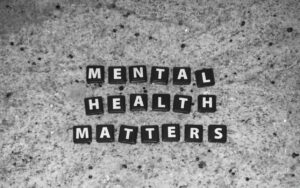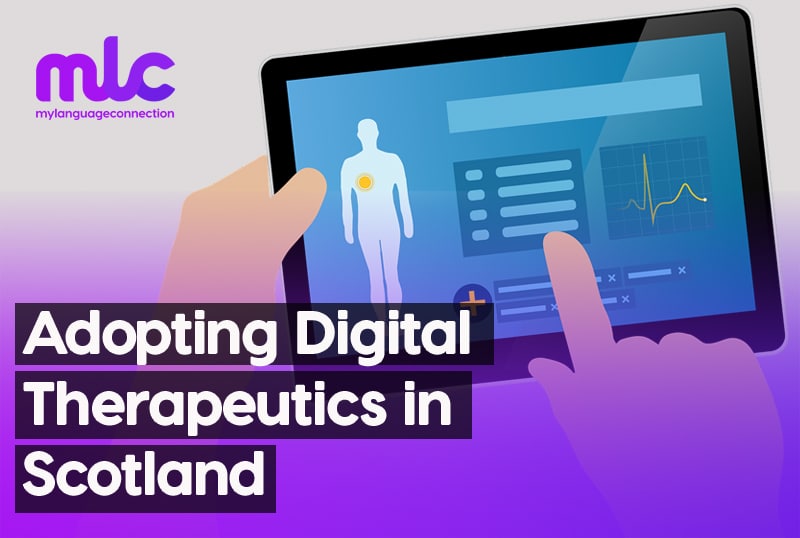Scotland becomes the world’s first in its deal with Big Health to adopt digital therapeutics as part of NHS Scotland’s commitment to treat anxiety and insomnia.
Now more than ever, healthcare and technology complement each other. There was a time when these two industries were independent of each other but nowadays, healthcare organisations and providers are turning to technology and technology-enabled tools to provide more efficient and quality services to patients.
With the adoption of Big Health’s digital therapeutics in Scotland, discover why this is an important milestone and what it means for the mental health industry.
 Milestone for Scotland’s Adoption of Digital Therapeutics
Milestone for Scotland’s Adoption of Digital Therapeutics
Big Health is a UK-based company that specialises in a safe and non-prescription drug based approach to treating mental health conditions. They are responsible for producing two of the world’s most notable digital mental health solutions – Sleepio and Daylight. These programmes are designed to address conditions like worry, anxiety, and insomnia.
The NHS Scotland has partnered with Big Health in not just a country’s first, but the world’s first in terms of adopting digital therapeutics on a national scale. With this partnership with the NHS, the Scottish health ministry will be using the health firm’s digital solutions, along with the digital cognitive behavioural therapy approaches, for consultation with relevant mental health issues.
According to Kevin Stewart, the Scottish minister for wellbeing and social care, the recent pandemic has given rise to the importance of proper mental health care and also exposed to the lack of services available to those who might need them. Hence, adopting digital therapeutics will enable NHS Scotland to provide the relevant services and provide more options to those who are in need of mental health care.
The digital mental health solutions offered by Big Health are clinically validated solutions; hence, patients can ensure the effectiveness of these treatment approaches. These solutions were first rolled out in October 2020 through five out of 14 NHS boards throughout Scotland. With the new arrangement with Big Health, this means the national rollout of these services are in effect.
What to Expect with Big Health Digital Therapeutics Adoption
So, what does the national adoption of digital therapeutics in Scotland mean? It’s certainly good news for patients in need of mental health services. The access to digital technologies and tools mean that people who need them will get the necessary services they need. NHS Scotland is working closely with Big Health to ensure that both technology-enabled solutions and in-person services are provided in a timely manner.
 Big Health has also reported that approximately 70% of patients who’ve used their digital therapeutics solutions showed improvements with their anxiety and insomnia. Furthermore, they report that these same patients had seven additional hours of sleep every week.
Big Health has also reported that approximately 70% of patients who’ve used their digital therapeutics solutions showed improvements with their anxiety and insomnia. Furthermore, they report that these same patients had seven additional hours of sleep every week.
While this is not the only solution offered by NHS Scotland in the treatment of mental health disorders and common conditions, their goal is to increase options for patients. They also prioritised evidence-based mental health solutions and they saw the potential with digital therapeutics. This is one way that NHS Scotland can support the Scottish government’s commitment to prioritising mental health care among its constituents.
How Can Digital Therapeutics Help Mental Health Treatment?
Digital therapeutics adoption is not the end-all, be-all approach to mental health care. But as mentioned above, there is plenty of evidence to support the ability of digital therapeutics and technology-enabled solutions, such as those offered by Big Health, as a viable solution for anxiety and insomnia. And while the impact of the pandemic has eased a bit, many are still feeling the limitations of the current setup, and providing digital solutions have expanded access to such services.
Digital therapeutics is designed to function similar to the use of drugs, but without its harmful side effects. This approach allows users to self-manage their symptoms, which greatly reduces the need to visit the doctor or GP for regular check-ups. For example, Sleepio is targeted for insomnia sufferers while Daylight is for those with anxiety.
 These digital solutions were developed and clinically tested by experts. It is an evidence-based solution so it builds on trust and credibility. The use of digital therapeutics is not just promising for NHS Scotland but also for the rest of Europe. It has the promise to provide better care at a lower cost. As a result, patients are empowered as they have more options rather than being limited by the treatments offered to them by the physician during consultation.
These digital solutions were developed and clinically tested by experts. It is an evidence-based solution so it builds on trust and credibility. The use of digital therapeutics is not just promising for NHS Scotland but also for the rest of Europe. It has the promise to provide better care at a lower cost. As a result, patients are empowered as they have more options rather than being limited by the treatments offered to them by the physician during consultation.
Since digital therapeutics often rely on behavioural and lifestyle changes, this treatment approach is safe and effective, if coupled with conventional medical treatments. It is beneficial not just for patients but also for businesses, healthcare systems, and clinicians. For this reason, the industry is growing not just within Scotland but also in various parts of Europe. By Scotland setting the example, it will only be a matter of time when the rest of Europe and the world follows suit.
MLC already supports private and public sector organisations in Scotland by providing localisation and language support for medical translation projects.

